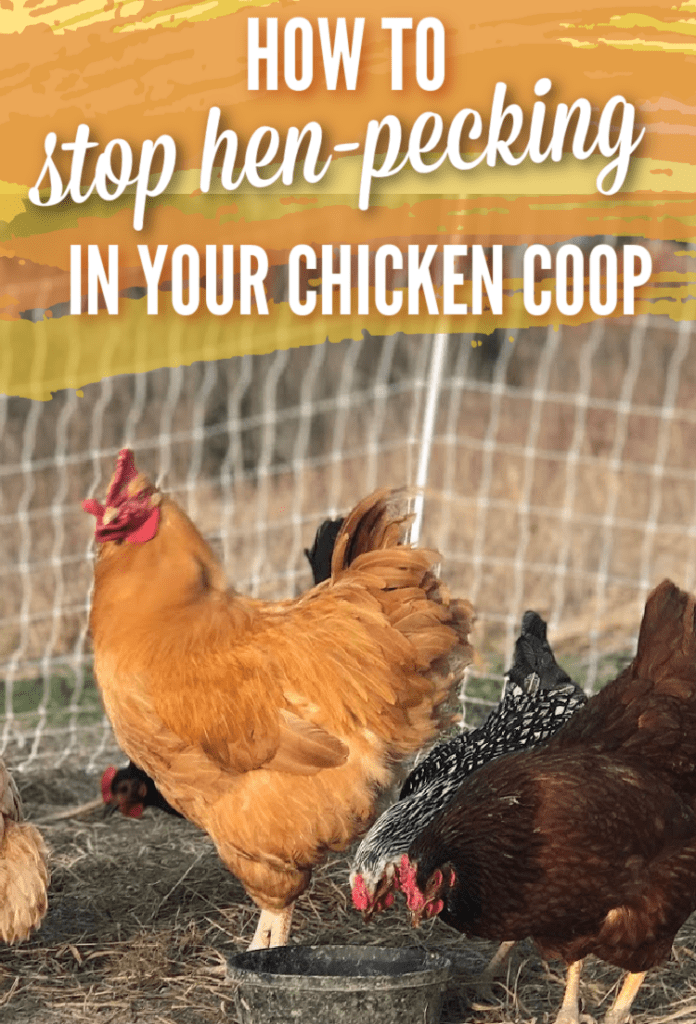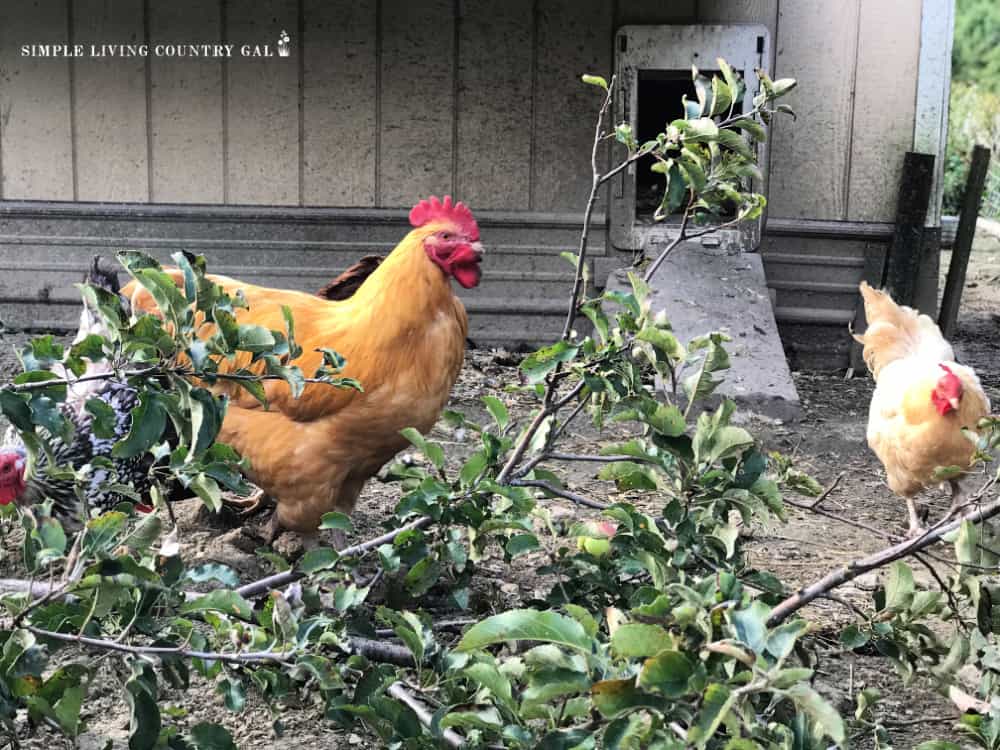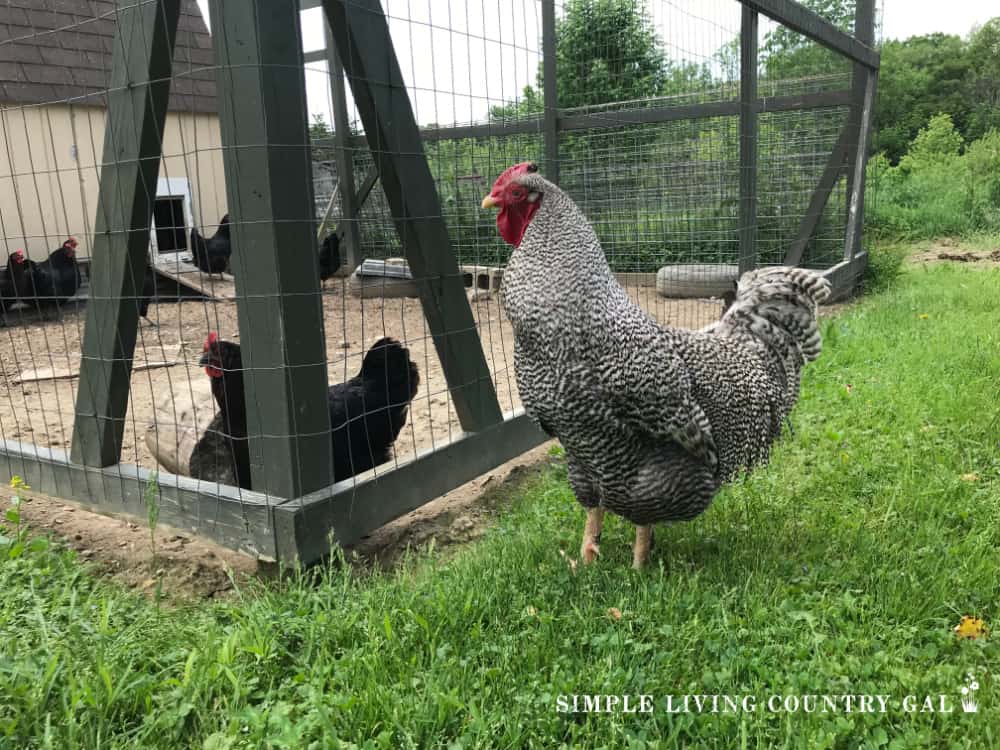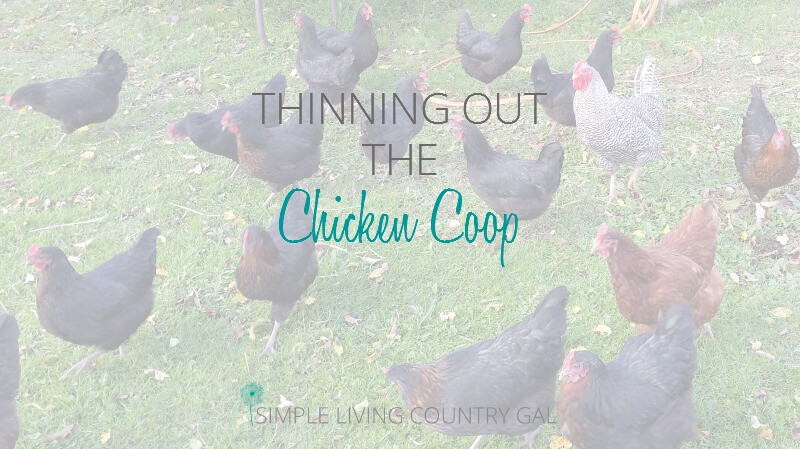Thinning Out The Chicken Coop
This article will walk you through the hard step of thinning out the chicken coop.
If you are new to raising chickens, it may surprise you at how much they can pick on smaller and weaker hens. Bullying can be an issue and something to watch out for so you can stop things before they get out of hand. Thinning out the chicken coop is the last option to have ready just in case your other efforts don’t help out.

I have been raising chickens for about 5 1/2 years now and I am still learning lessons from my crazy gals.
Year one I started out with 15 chicks and all was well. Then came year two when I decided to add on 10 more chicks. Along with them came a not so intelligent rooster whom we lovingly call Bubba. I quickly outgrew our chicken coop and we were on the hunt for bigger digs. We finally converted our shed into our new chicken coop for little money and all was good again.
Year four I got a little crazy and added 15 more gals to the mix. I then realized things were getting a bit tight in our coop and it was time to make some changes.
When you are raising chickens, having adequate room is essential. It is best to provide 2-4 square feet depending on your breed of bird. I had a mix of birds and although I had enough room for my smaller breeds, there was not quite enough room for my larger ones.
Here is a great article to read on providing enough space for your hens.
Unfortunately, I did not address this soon enough and therefore my chickens became a bit disgruntled. This past winter I noticed a handful of my older birds were missing feathers. Large patches on their backs that were not caused by a rooster. I did some investigating thinking there were health issues happening, such as molting but that wasn’t it. I then looked to see if any of my flock was infected with parasites and that came up a no also.
I finally realized that I had a hen that was bullying some of my weaker and smaller birds. This was my first time dealing with this issue so I wasn’t quite sure how to help out. I added in more roosts to be sure everyone had a spot to sleep safely at night.
I next put obstacles in the run so the birds that were getting hen-pecked could stay out of the bully’s way. If you are looking for an easy way to build a chicken roost in your hen house, read All About Chicken Roosts to learn how.

The next step was to be sure everyone had a safe place to eat and drink so I added another source of water and food.
Although things did calm down a bit, there was still hen-pecking occurring. Finally, after a couple of weeks of feathers in the yard and in the coop, I made the hard decision to sell off a few of my birds.
Now before you ask, we do not eat our chickens. They are like pets to us and I have not reached that stage of farming yet. I talked to hubby and we decided to take 6 birds to the local livestock auction to sell.
My goal was to find the bully so I could remove her and create a flock that was more laid back. To do this I put out some chicken scratch and mealworms and watched. Soon enough she immediately went after anyone who got into her space, pecking at them and squawking. She also was one of the hens with all her feathers still in tack. It seems I would have made a great detective. 🙂
The next day she and 5 off my oldest hens went off to auction and I am happy to say they fetched a pretty decent price. Though it was hard to do, I know it needed to be done for the safety of my other hens.
My flock is now down to a much more manageable size. I am happy because the hen-pecking has stopped, the hens are happy not to be bullied and my rooster, Bubba is more at ease because the flock is easier for him to watch after.

How to prevent Hen Pecking
Step #1 – Have enough space.
Make sure you have enough space in your coop for each of your birds. The minimum rule of space needed is about 2 to 3 square feet per chicken inside the chicken coop, and 8 to 10 square feet per chicken in an outside run.
Step #2 – Offer more food options.
For larger flocks be sure to offer more than one food and water option. Put water out in the run in the summer to really ensure your flock has enough to drink at all times.
Step #3 – Have enough room on the roost.
Have at least one roost that will accommodate all your hens, if not you may need to add another. You are looking to have about 9-11 inches of space on a roost for each hen.
Step #4 – Keep a young and healthy flock.
Hens will lay usually eggs for 3 years with some breeds laying longer a bit longer. When your hens stop laying you will want to consider removing them so your flock is full of healthy egg-laying hens.
When you are first starting out, it is important to make sure your coop is big enough to provide your hens with ample space to live without the risk of hen-pecking. Once it starts it can be a bit tricky to stop. Remember….happy hens mean lots of amazing and delicious eggs for you and your entire family.
Want more chicken care tips? You can find all of my Raising Chickens posts here!


Thanks for the great information. I’m new to all this and my little girl is adopted. Her flock is gone and she is the only one left. She refused to integrate with my neighbors flock because they peck her so bad animal it’s abuse. She is scared to death of them so she hangs out with me and I take care of her.
After several times of almost dying from these attacks we have decided to build her a coop and run to keep her safe. For one girl do recommend an area 3′ wide by 8′ long or should it be bigger?
One chicken only needs 2-3 square feet inside the coop and 8-10 square feet in the run, so you are fine!